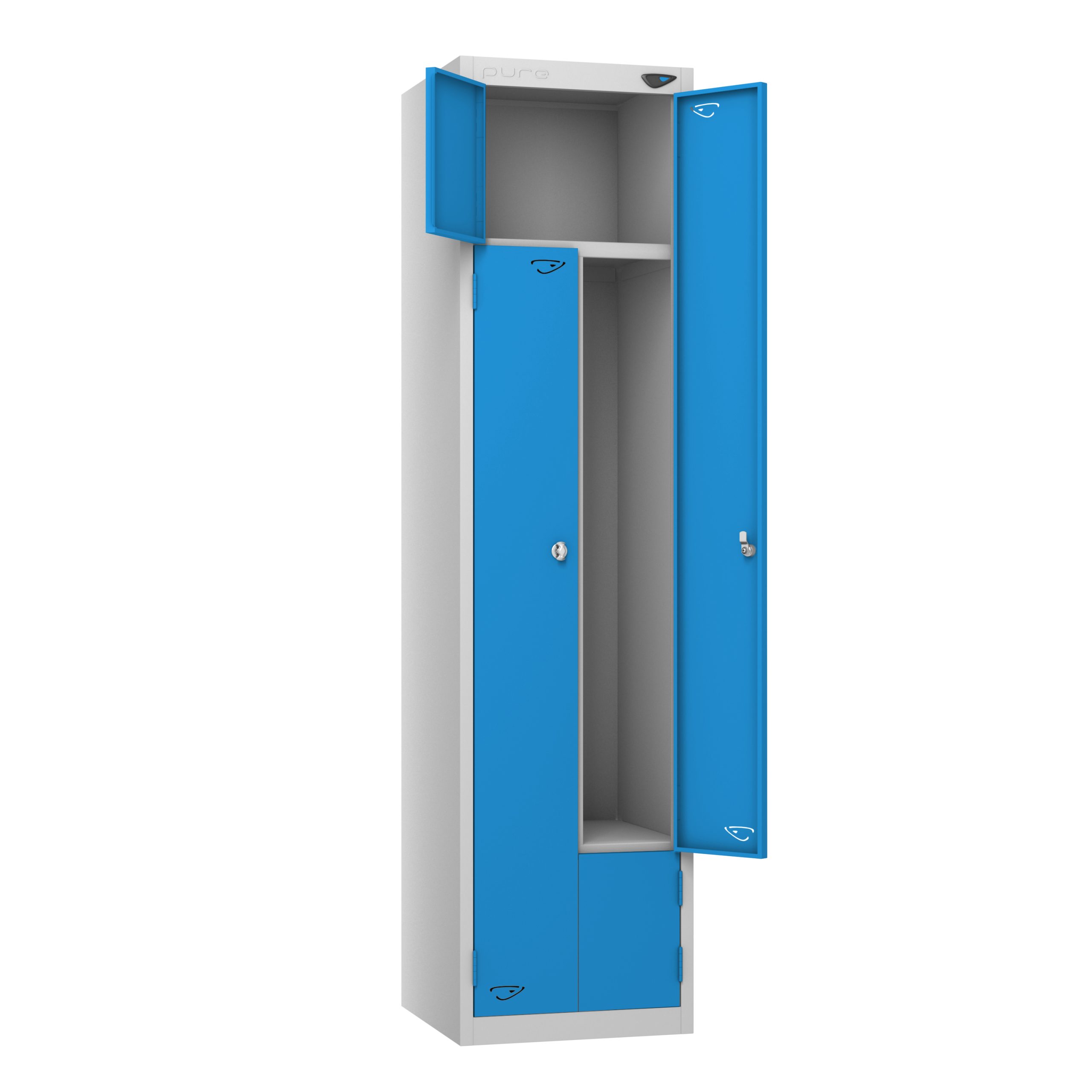Commercial lockers UK. Finding the right commercial lockers for your facility transforms how you manage storage and security. Moreover, proper locker selection enhances employee satisfaction and protects valuable belongings. Consequently, investing time in understanding your options delivers long-term benefits for your organisation.
This comprehensive guide explores everything you need to know about commercial locker solutions in the UK. Additionally, we cover legal requirements, pricing considerations and maintenance best practices. Therefore, you can make informed decisions that serve your facility for years to come.
Whether you manage a school, workplace, gym or healthcare facility, this guide provides expert insights. Furthermore, we examine different locker types and their specific applications. Subsequently, you’ll understand which solution best meets your unique requirements.
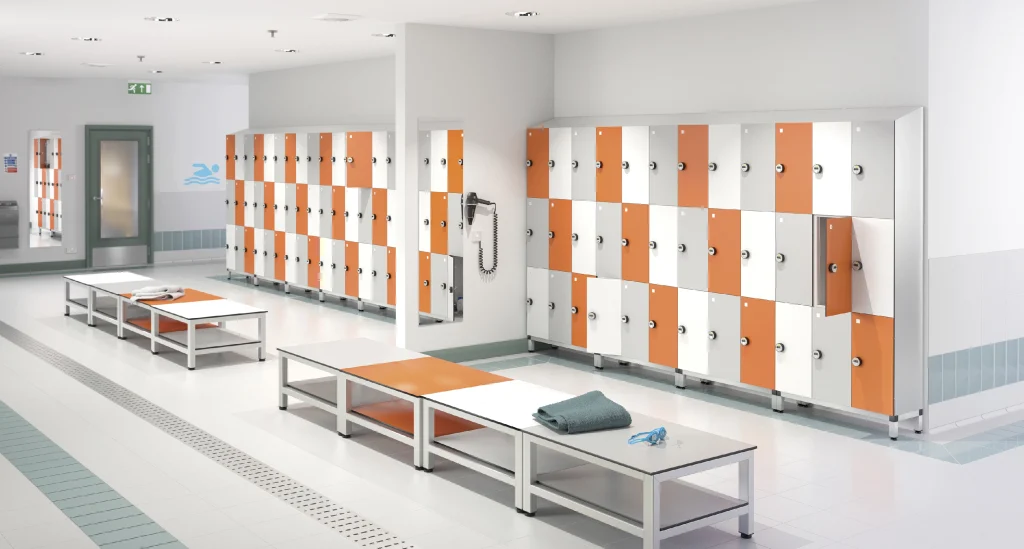
Commercial lockers UK. Understanding Your Commercial Locker Needs by Industry
Different industries require distinct locker solutions tailored to their specific environments. Moreover, understanding these requirements ensures compliance and user satisfaction. Therefore, let’s explore the key sectors and their unique storage needs.
Education Sector Locker Requirements
Schools and universities need durable lockers that withstand daily student use. Additionally, these facilities require various sizes to accommodate different age groups. Furthermore, educational institutions benefit from lockers with ventilation to prevent odour build-up.
Primary schools typically need smaller compartments with bright, engaging colours. Conversely, secondary schools and universities require full-height lockers for coats and bags. Moreover, charging lockers have become increasingly popular for storing tablets and laptops safely.
Safety represents a critical consideration in educational environments. Therefore, rounded edges and anti-trap mechanisms protect young users effectively. Additionally, schools must consider UK workplace locker laws regarding student privacy and security.
Workplace and Office Storage Solutions
Modern workplaces demand flexible storage solutions that support agile working practices. Furthermore, hot-desking environments require lockers with easy access and short-term rental capabilities. Consequently, smart lockers with digital access have grown tremendously popular in corporate settings.
Manufacturing facilities need heavy-duty lockers for PPE and work equipment storage. Moreover, clean-dirty separation becomes essential in industrial environments. Therefore, two-compartment lockers allow workers to keep contaminated items separate from personal belongings.
Office environments benefit from sleek, professional-looking lockers that complement interior design. Additionally, these spaces often require lockers for laptop storage and charging. Subsequently, RFID-enabled lockers provide convenient, keyless access for busy professionals.
Gym and Leisure Facility Requirements
Gyms and leisure centres face unique challenges with moisture and heavy usage patterns. Moreover, these facilities require lockers resistant to corrosion and water damage. Therefore, plastic or treated metal lockers perform best in these demanding environments.
Swimming pools and spa facilities need completely waterproof locker solutions. Additionally, proper ventilation prevents mould growth and unpleasant odours. Furthermore, coin-return mechanisms suit day-use scenarios in public leisure facilities.
Boutique fitness studios often prefer aesthetically pleasing lockers that match their brand identity. Conversely, large commercial gyms prioritise durability and cost-effectiveness. Subsequently, suppliers like Total Locker Service offer customisation options for both scenarios.
Healthcare Facility Storage Needs
Hospitals and clinics require hygienic lockers that support infection control protocols. Moreover, these facilities need easy-to-clean surfaces that resist bacterial growth. Therefore, stainless steel or antimicrobial-coated lockers serve healthcare settings best.
Staff lockers in healthcare facilities must provide secure storage for personal items and valuables. Additionally, these environments require separate storage for uniforms and outdoor clothing. Furthermore, adequate ventilation prevents the spread of contaminants between areas.
Medical facilities must comply with strict regulatory standards for staff welfare. Consequently, proper locker provision forms part of health and safety obligations. Moreover, secure storage protects sensitive items like identification badges and access cards.
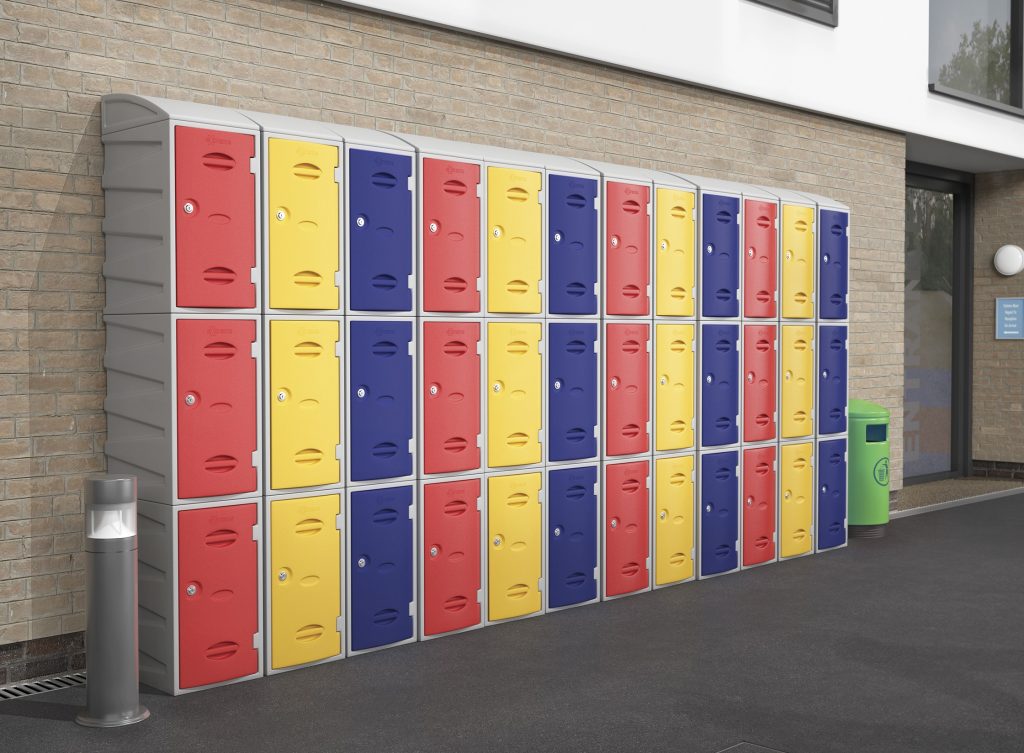
Commercial lockers UK. Types of Commercial Lockers Available in the UK
Selecting the right locker type significantly impacts functionality, durability and user satisfaction. Moreover, understanding material differences helps you make cost-effective decisions. Therefore, let’s examine the main locker categories and their specific applications.
Metal Lockers: The Traditional Choice
Metal lockers remain the most popular choice for commercial installations across the UK. Additionally, they offer excellent durability and security at competitive price points. Furthermore, steel construction provides robust protection for valuable items and equipment.
Standard metal lockers feature powder-coated finishes that resist scratches and impacts. Moreover, this coating comes in various colours to match your facility’s branding. Consequently, you can create cohesive, professional-looking storage areas throughout your premises.
These lockers suit most indoor environments where moisture levels remain moderate. However, coastal locations or high-humidity areas require additional corrosion protection. Therefore, consider treated or stainless steel options for these challenging environments.
Plastic Lockers: Ideal for Wet Environments
Plastic lockers excel in swimming pools, spas and other moisture-rich environments. Moreover, they completely resist rust and corrosion regardless of water exposure. Additionally, plastic construction eliminates the cold-to-touch sensation of metal in changing rooms.
These lockers require minimal maintenance compared to metal alternatives. Furthermore, graffiti and stickers remove easily from smooth plastic surfaces. Subsequently, facilities save time and money on cleaning and upkeep over the locker’s lifetime.
Modern plastic lockers offer surprising strength despite their lightweight construction. Moreover, UV-stabilised materials prevent colour fading in areas with natural light. Therefore, plastic lockers maintain their appearance for many years without deterioration.
Laminate and Wooden Lockers: Premium Aesthetics
Laminate and wooden lockers provide upscale aesthetics for premium facilities. Additionally, these materials create warm, welcoming environments in executive areas and private clubs. Furthermore, wood grain finishes complement traditional architecture beautifully.
High-pressure laminate (HPL) offers excellent durability whilst maintaining elegant appearance. Moreover, this material resists impacts, scratches and moisture better than natural wood. Consequently, HPL lockers combine aesthetic appeal with practical performance.
These premium lockers suit golf clubs, boutique gyms and executive office spaces particularly well. However, they typically cost more than metal or plastic alternatives. Therefore, budget considerations must balance against desired aesthetic outcomes.
Smart Lockers: The Future of Storage
Smart lockers represent the cutting edge of commercial storage technology. Moreover, they offer digital access control, usage tracking and remote management capabilities. Consequently, facilities gain unprecedented insight into locker utilisation and security.
Electronic locks eliminate key management headaches entirely. Additionally, temporary access codes suit hot-desking and visitor scenarios perfectly. Furthermore, audit trails provide detailed records of locker access for security purposes.
Integration with existing access control systems streamlines facility management significantly. Moreover, smartphone apps enable users to book and access lockers conveniently. Subsequently, smart lockers enhance user experience whilst improving operational efficiency.
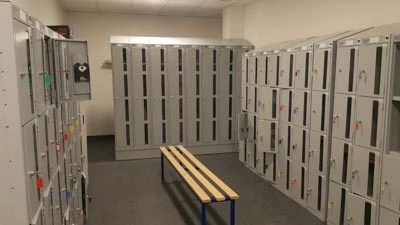
Commercial lockers UK. Understanding Lock Types for Commercial Lockers
Lock selection dramatically affects security levels, convenience and ongoing maintenance requirements. Moreover, different environments demand specific locking mechanisms for optimal performance. Therefore, understanding your options ensures you choose the most appropriate solution.
Mechanical Combination Locks
Mechanical combination locks eliminate key management entirely through simple dial mechanisms. Additionally, users set their own personal codes for convenient, secure access. Furthermore, these locks require no batteries or electrical connections whatsoever.
These locks suit educational environments where students share lockers between terms. Moreover, facilities can easily reset combinations when users change. Consequently, mechanical locks offer long-term cost savings through minimal maintenance requirements.
However, combination locks may pose challenges for younger children or elderly users. Additionally, some users struggle to remember number sequences reliably. Therefore, consider your user demographic carefully when selecting this option.
Key Locks: Traditional and Reliable
Traditional key locks provide straightforward, familiar operation for all user groups. Moreover, cam locks offer adequate security for most commercial applications. Additionally, master key systems enable facility managers to access lockers when necessary.
Key management represents the primary challenge with this locking system. Furthermore, lost keys create security risks and replacement costs. Subsequently, facilities must implement robust key control procedures and tracking systems.
Despite these challenges, key locks remain popular for their simplicity and reliability. Moreover, they require no user training or technical support. Therefore, key locks suit facilities with stable, long-term locker assignments particularly well.
Electronic and RFID Locks
Electronic locks provide advanced access control with audit trail capabilities. Additionally, RFID systems integrate seamlessly with existing security cards and badges. Furthermore, battery-powered locks eliminate expensive electrical installation requirements.
These systems excel in corporate environments with existing access control infrastructure. Moreover, lost cards deactivate instantly without physical lock changes. Consequently, security remains tight whilst administrative burden decreases significantly.
Battery maintenance represents the primary ongoing cost consideration. However, modern electronic locks offer multi-year battery life. Therefore, maintenance requirements remain manageable across typical facility sizes.
Coin-Return and Coin-Retain Systems
Coin-operated locks suit leisure facilities with day-use requirements perfectly. Moreover, coin-return systems encourage locker turnover in busy facilities. Additionally, these mechanisms generate modest revenue whilst deterring locker hoarding.
Users appreciate coin-return systems because they eventually recover their deposit. Furthermore, the mechanism provides adequate security for short-term storage scenarios. Subsequently, gyms, swimming pools and visitor centres employ these systems extensively.
Coin-retain mechanisms suit revenue-generating scenarios where usage fees apply. However, cashless payment trends reduce the practicality of coin-operated systems. Therefore, some facilities now prefer app-based payment alternatives instead.
For detailed information about different lock types and security features, explore our comprehensive locks guide.
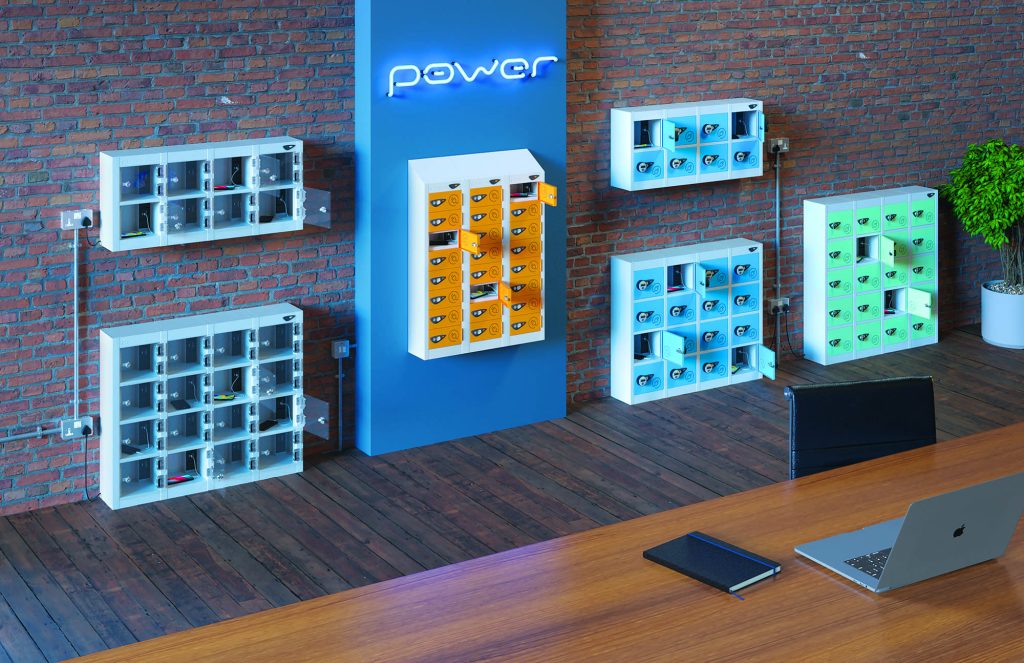
UK Legal Requirements for Commercial Lockers
Understanding legal obligations protects your organisation from liability whilst respecting employee rights. Moreover, compliance demonstrates your commitment to staff welfare and security. Therefore, familiarising yourself with relevant legislation proves essential before installation.
Employment Rights and Privacy Considerations
The Employment Rights Act 1996 establishes fundamental principles regarding workplace storage. Additionally, employees possess reasonable privacy expectations in designated personal storage areas. Furthermore, employers must balance these rights against legitimate business interests carefully.
Clear policies outlining locker access procedures protect both employers and employees. Moreover, documented procedures demonstrate compliance during disputes or investigations. Consequently, comprehensive locker policies form essential elements of employee handbooks.
Search procedures require specific justification and proper documentation for legal protection. Additionally, witnesses should attend searches to ensure procedural fairness. Therefore, training managers on proper search protocols prevents costly legal challenges.
For comprehensive guidance on workplace locker laws in the UK, consult our detailed legal compliance guide.
Data Protection and GDPR Compliance
Electronic locker systems that track usage create personal data requiring GDPR compliance. Moreover, access logs constitute personal information subject to data protection principles. Additionally, employees possess rights to access data held about their locker usage.
Privacy impact assessments may prove necessary before implementing smart locker systems. Furthermore, data retention policies must define how long access records remain stored. Subsequently, regular audits ensure ongoing compliance with data protection regulations.
Surveillance cameras monitoring locker areas require careful consideration under GDPR rules. Moreover, proportionality principles limit surveillance to genuine security requirements. Therefore, legal advice ensures your monitoring practices comply with privacy legislation.
Health and Safety Obligations
The Workplace Health, Safety and Welfare Regulations 1992 mandate suitable storage facilities. Moreover, Regulation 23 specifically requires secure storage for employee clothing and belongings. Additionally, facilities must remain accessible to employees throughout working hours.
Risk assessments must evaluate security risks and potential hazards around locker areas. Furthermore, inadequate storage can create trip hazards or emergency exit obstructions. Subsequently, proper planning ensures locker placement supports overall workplace safety.
Regular inspections identify maintenance issues before they compromise safety or security. Moreover, documented maintenance schedules demonstrate ongoing compliance with health and safety duties. Therefore, proactive maintenance protects against liability claims effectively.
Fire Safety and Emergency Access
Fire safety regulations affect locker placement and emergency access procedures. Moreover, locker banks must not obstruct escape routes or emergency equipment. Additionally, master key systems enable emergency services to access lockers during incidents.
Combustible materials stored in lockers require consideration during fire risk assessments. Furthermore, proper ventilation reduces fire risks from battery-powered devices or flammable substances. Subsequently, clear policies about prohibited items protect against avoidable hazards.
Emergency procedures should address locker access during evacuations and incidents. Moreover, staff training ensures everyone understands emergency protocols thoroughly. Therefore, incorporating lockers into emergency plans maintains comprehensive safety coverage.
Essential Features in Commercial Locker Selection
Specific features significantly impact locker performance, longevity and user satisfaction. Moreover, understanding these elements helps prioritise your investment appropriately. Therefore, evaluating features systematically ensures you select the optimal solution.
Durability and Construction
Construction quality determines how well lockers withstand years of intensive use. Moreover, gauge thickness in metal lockers directly affects strength and longevity. Additionally, reinforced doors and frames provide enhanced security for high-value storage.
Ventilation Systems
Proper ventilation prevents odour build-up and protects stored items from moisture damage. Moreover, perforated doors and vented tops promote healthy air circulation. Additionally, ventilation becomes particularly crucial in gym and leisure environments.
Security Levels and Locking Options
Security requirements vary dramatically depending on stored items and facility type. Moreover, high-value storage demands reinforced construction and advanced locking mechanisms. Additionally, institutional environments may require master key or override capabilities.
- Anti-tamper features deter unauthorised access attempts effectively
- Concealed hinges prevent door removal by determined intruders
- Insurance compliance may mandate specific security standards
Customisation and Branding Options
Custom colours enable lockers to complement your facility’s interior design scheme. Moreover, branded lockers reinforce corporate identity throughout your premises. Additionally, colour-coding different locker banks aids wayfinding and organisation.
Numbering and labelling systems require consideration during specification. Furthermore, digital printing enables custom graphics and branding applications. Subsequently, professional-looking lockers enhance overall facility presentation significantly.
Size customisation ensures optimal space utilisation in your specific facility. Moreover, bespoke dimensions accommodate awkward spaces or unusual requirements. Therefore, specialist suppliers can tailor solutions to your exact needs.
Accessibility and Inclusive Design
Accessibility regulations require consideration of users with disabilities. Moreover, lower-height lockers enable wheelchair users to access storage independently. Additionally, contrasting colours assist visually impaired users in locating their lockers.
Handle designs should accommodate users with limited dexterity or grip strength. Furthermore, clear signage and numbering help users with cognitive disabilities. Subsequently, inclusive design benefits all users whilst ensuring legal compliance.
Commercial Locker Installation Best Practices
Proper installation ensures lockers function correctly and remain secure throughout their lifetime. Moreover, professional installation prevents structural issues and warranty complications. Therefore, understanding installation requirements helps you plan projects effectively.
Space Planning and Layout Design
Effective space planning maximises storage capacity whilst maintaining comfortable circulation space. Moreover, adequate clearance allows users to access lockers without congestion. Additionally, proper layout prevents bottlenecks during peak usage times.
Measure your space carefully before specifying locker quantities and configurations. Furthermore, allow for door swing clearance when lockers open fully. Subsequently, detailed floor plans prevent costly modifications after installation begins.
Professional Installation vs DIY
Professional installation guarantees correct assembly and proper fixing techniques. Moreover, experienced installers complete projects faster with minimal disruption. Additionally, professional installation typically includes warranty coverage for workmanship.
DIY installation may seem cost-effective initially but carries significant risks. Furthermore, incorrect assembly can void manufacturer warranties entirely.
Complex installations involving electrical components definitely require professional expertise. Moreover, specialist installers understand building regulations and safety requirements thoroughly. Therefore, professional installation delivers peace of mind and guaranteed results.
Commercial lockers UK. Maintaining Your Commercial Locker Investment
Regular maintenance extends locker life and maintains optimal performance throughout their service period. Moreover, preventative care costs significantly less than reactive repairs. Therefore, establishing maintenance schedules protects your investment effectively.
| Maintenance Task | Frequency | Benefit |
|---|---|---|
| Visual Inspection | Monthly | Identify issues early |
| Lock Lubrication | Quarterly | Smooth operation |
| Deep Cleaning | Annually | Hygiene & appearance |
| Hinge Adjustment | As needed | Prevent door sagging |
Common Repairs and Replacement Parts
Lock replacements represent the most common repair requirement in commercial installations. Moreover, standardised lock types simplify sourcing replacement components. Additionally, stocking common spare parts enables quick repairs minimising downtime.
Extending Locker Lifespan
Proper user education reduces damage from misuse and careless handling. Moreover, clear usage guidelines prevent common problems effectively. Additionally, visible signage reminds users about proper care procedures.
Environmental controls protect lockers from moisture and temperature extremes. Furthermore, adequate ventilation prevents corrosion in humid environments. Subsequently, controlling environmental factors maximises material longevity.
Commercial lockers UK. Understanding Commercial Locker Costs
Locker pricing varies significantly based on materials, features and quantities. Moreover, understanding cost factors enables realistic budget planning. Therefore, comprehensive cost analysis ensures appropriate allocation of resources.
Price Ranges by Locker Type
Standard Metal
£80-£150 per unit
Most economical option for general use
Plastic Lockers
£120-£200 per unit
Ideal for wet environments
Smart Lockers
£250-£500 per unit
Advanced digital access control
Bulk Ordering and Volume Discounts
Large quantity purchases typically qualify for tiered pricing discounts. Moreover, single large orders prove more economical than multiple small purchases. Additionally, consistent specifications across orders simplify procurement and maintenance.
Selecting a Commercial Locker Supplier
Supplier selection significantly impacts project success and long-term satisfaction. Moreover, established suppliers offer valuable expertise beyond simple product provision. Therefore, careful supplier evaluation ensures optimal partnership outcomes.
Why Choose Total Locker Service
Total Locker Service brings decades of expertise to commercial locker solutions across the UK. Moreover, comprehensive product ranges suit every sector and application imaginable. Additionally, complete project management from specification through installation ensures seamless delivery.
- Competitive Pricing: Exceptional quality delivering outstanding value
- Nationwide Service: Consistent support regardless of location
- Customisation: Bespoke solutions matching exact requirements
- Ongoing Support: Maintenance protecting your investment
Commercial lockers UK. Frequently Asked Questions
How many lockers do I need for my facility?
Calculate locker requirements based on peak occupancy rather than total capacity. Moreover, consider shift patterns and part-time staff when determining quantities. Additionally, allow 10-20% spare capacity for growth and maintenance rotation.
What’s the best locker type for wet environments?
Plastic lockers perform best in swimming pools, spas and shower areas. Moreover, they completely resist corrosion regardless of continuous moisture exposure. Additionally, plastic materials don’t feel cold against skin in changing environments.
How long do commercial lockers typically last?
Quality metal lockers in moderate environments last 15-25 years with proper maintenance. Moreover, plastic lockers in wet areas often exceed 20 years’ service life. Additionally, harsh environments or heavy usage may reduce longevity somewhat.
Are smart lockers worth the extra investment?
Smart lockers deliver significant benefits in dynamic environments with changing users. Moreover, eliminating key management alone justifies premium pricing in many scenarios. Additionally, usage analytics enable data-driven space optimisation decisions.
Commercial lockers UK. Making Your Commercial Locker Decision
Selecting appropriate commercial lockers significantly impacts facility functionality and user satisfaction. Moreover, proper specification ensures compliance whilst protecting your investment long-term. Therefore, taking time to evaluate options thoroughly delivers superior outcomes.
This comprehensive guide has explored every aspect of commercial locker solutions. Additionally, you now understand material types, legal requirements and cost considerations. Furthermore, real-world examples demonstrate successful implementations across various sectors.
Quality suppliers like Total Locker Service provide expertise guiding optimal decisions. Moreover, professional installation and ongoing support protect your investment throughout its lifecycle. Subsequently, partnering with experienced suppliers ensures project success.
Ready to Transform Your Storage Solutions?
Contact Total Locker Service today for expert consultation
📞 Call: 01284 749211
✉️ Email: sales@totallocker.co.uk
